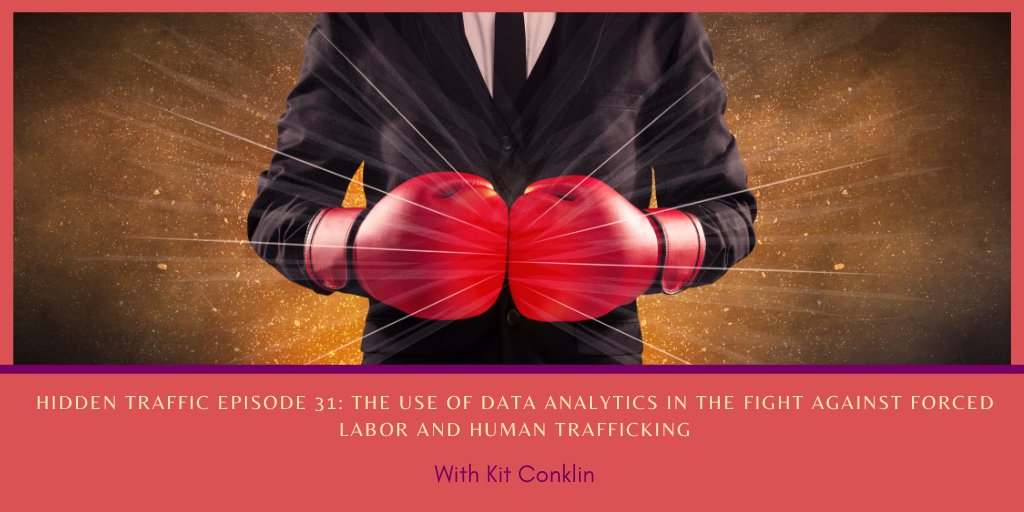
In this episode of Hidden Traffic Podcast, Gwen Hassan interviews Kit Conklin, Vice President at Kharon, and Senior Fellow at the Atlantic Council. Kharon is a company that provides research and data analytics on global security threats, sanctions, and other financial risks. Kit and Gwen discuss the role of data analytics in addressing forced labor issues. They emphasize that traditional methods of identifying forced labor, such as audits and inspections, have limitations and may not be effective in detecting all instances of forced labor. In contrast, data analytics can help companies to identify patterns and indicators of forced labor, such as unusual labor practices and supplier relationships.
Data analytics can help companies to better manage risks related to forced labor. By analyzing data on suppliers, transactions, and other relevant factors, companies can identify high-risk areas and take preventive measures. The use of predictive analytics can also help companies to anticipate and prevent instances of forced labor before they occur. Collaboration between companies, governments, and other stakeholders is crucial in addressing forced labor issues. Data sharing and cooperation can help to identify and address systemic issues related to forced labor. Additionally, regulatory frameworks and industry standards can provide guidance and incentives for companies to address forced labor risks.
Kit highlights the challenges of implementing effective data analytics programs. Companies may face technical, organizational, and cultural barriers in adopting data analytics tools and integrating data from multiple sources. Ensuring data privacy and security is also crucial to build trust and confidence in data analytics programs. Overall, data analytics can be a powerful tool for promoting sustainability and ethical business practices. By using data analytics to identify and address forced labor risks, companies can contribute to a more responsible and sustainable global supply chain. Additionally, data analytics can help to track progress and measure the impact of efforts to address forced labor, providing a basis for continuous improvement.
Resources
Kit Conklin on LinkedIn | Email | Atlantic Council





